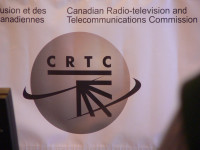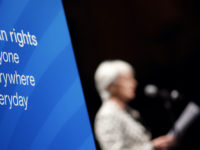This series has devoted the past several weeks to making the case that the Bell coalition website blocking plan is a disproportionate, ineffective response to piracy that is out-of-step with global standards, will raise consumer Internet costs, result in over-blocking legitimate content, and that is offside Canadian norms on net neutrality, privacy and human rights. Yet even if the CRTC were to still think this terrible idea is worth supporting, it would fall outside its stated rules on approving website blocking. The Commission has made it clear that it will only permit blocking in “exceptional circumstances” and only where doing so would further the objectives found in the Telecommunications Act.
Post Tagged with: "bell"
The Case Against the Bell Coalition’s Website Blocking Plan, Part 13: It is Inconsistent With the CRTC Policy Direction
Having examined the foundational weaknesses of the Bell coalition’s website blocking plan (existing Canadian law, weak piracy evidence, limited impact) and its negative effects (lack of court orders, overblocking, ineffectiveness, violation of net neutrality, vulnerability on freedom of expression grounds, higher Internet costs, privacy risks), the case against the plan enters the final phase with several posts on how it fails to meet the requirements under the Telecommunications Act.
In 2006, then-Industry Minister Maxime Bernier led the push for a new policy direction to the CRTC on implementing Canadian telecommunications policy objectives. The direction states:
The Case Against the Bell Coalition’s Website Blocking Plan, Part 12: Increasing Privacy Risks for Canadians
The Bell website blocking coalition cites privacy protection as a reason to support its plan, noting the privacy risks that can arise from unauthorized streaming sites. There are obviously far better ways of protecting user privacy from risks on the Internet than blocking access to sites that might create those risks, however. Further, with literally millions of sites that pose some privacy risk, few would argue that the solution lies in blocking all of them. In fact, the privacy argument is not only weak, it is exceptionally hypocritical. Bell is arguably the worst major Canadian telecom company on user privacy and its attempt to justify website blocking on the grounds that it wants to protect privacy is not credible.
The Case Against the Bell Coalition’s Website Blocking Plan, Part 11: Higher Internet Access Costs for All
The Bell website blocking coalition includes several Internet providers, but there are no smaller, independent ISPs. The absence of smaller ISPs that are essential to the government’s aspiration for greater Internet access competition is unsurprising given the costs associated with site blocking that can run into the millions of dollars with significant investments in blocking technologies and services, employee time to implement blocking mandates, and associated service issues. A mandated blocking system applied to all ISPs in Canada would have an uneven impact: larger ISPs will face new costs but may find it easier to integrate into existing systems (some already block child pornography images), whereas hundreds of smaller ISPs would face significant new costs that would affect their marketplace competitiveness. In fact, larger ISPs might ultimately benefit from higher fees passed along to subscribers and reduced competition.
The Case Against the Bell Coalition’s Website Blocking Plan, Part 10: Why It May Violate Human Rights Norms
The Bell coalition website blocking plan may violate more than just Canadian net neutrality rules. As currently framed, it may also violate human rights norms. Website blocking or other measures to limit access to the Internet raises obvious freedom of expression concerns that has sparked commentary from many international governmental organizations. Frank LaRue, the former U.N. Rapporteur on Freedom of Expression, was one of several experts on freedom of expression, including representatives from the Organization for Security and Co-operation in Europe, the Organization of American States, and the African Commission on Human and Peoples’ Rights, who issued a joint declaration in 2011 on freedom of expression and the Internet. It states the following on blocking:











